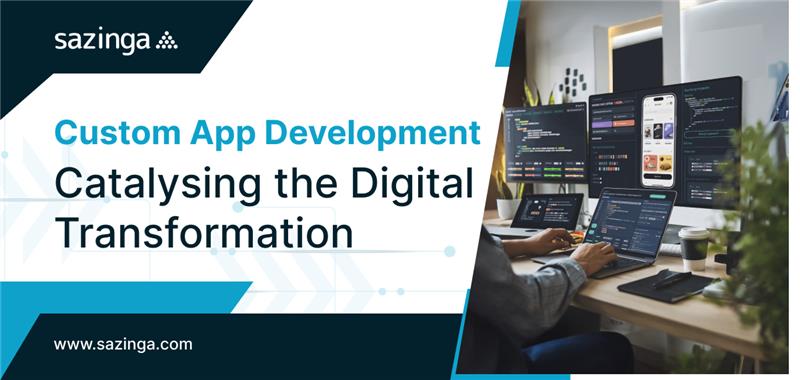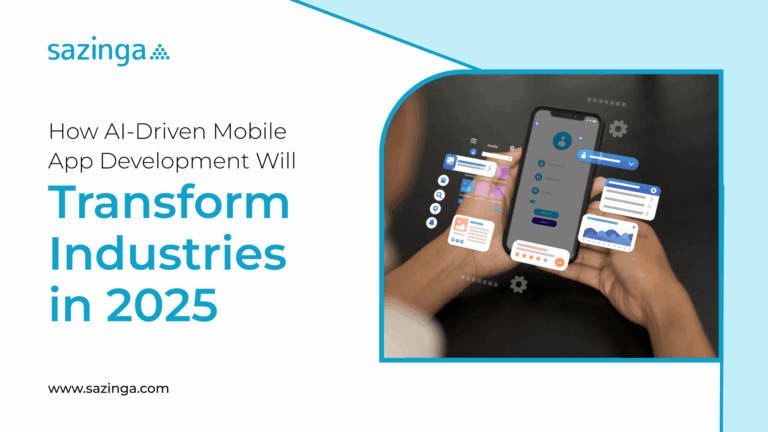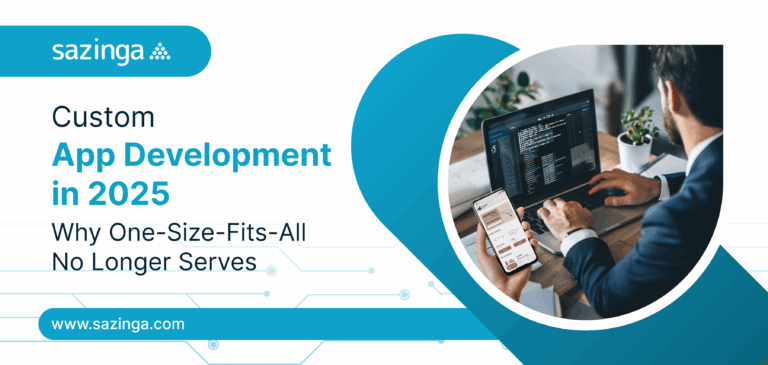Custom App Development: Catalysing the Digital Transformation
In a world where everything is digitized right from booking a plane ticket to attending school online, the need for Custom App Development has increased significantly. There are more than eight million different types of apps available in the market, but will just any off-the-shelf solution suffice our requirements, or do we need specific features in our app for the purpose we want to satisfy? This is where custom app development comes into the picture. It helps provide more personalized and innovative features to the ever-increasing population of modern consumers with special requests. Around 85% of custom software development firms focus on enterprise application development, meeting complex business needs.
Thus, custom app development acts as the transformative bridge between businesses that want to elevate their business profile, engage customers, and propel growth.
The custom app development process is extravagantly elaborate, it encompasses all activities and procedures that are linked to the delivery of a product to the market- right from the ideation phase to the ready-to-use solution.
What is custom app development?
Custom app development is the development of applications that are tailored to help you solve problems that are unique to your business or you. It can be highly customized so your workflow is as smooth as possible.
What are various app development methodologies?
There are multiple ways of building software and apps. Application can be developed or made with no-code or low code development also.
No-code development: In this scenario, your developers don’t need advanced programming skills, they can instead take apps to task with tools that let you drag-and-drop the functionalities the same way you want them to perform. This is incredibly useful for the non-technical individual wishing to build an app that is not hooked to complex technicalities and processes.
Low-code development: Sits between no-code and custom app development, which means you can introduce some form of specificity into your app, via design, interface, system, etc.It, of course, won’t be able to satisfy all your needs, but with a little manual work, it can evolve your basic, no-code app into a little bit more personalized app.
Custom: In here, you actually will need to hire experts wherein the developer will create the app exactly the way you want right to the T. It will let you have your app structure to provide the features, which you exactly need. Another advantage is that it can be modified as and when you want.
The Role of Custom Apps in Digital Transformation
Custom applications are designed specifically by businesses to automate processes, enhance efficiency, and improve the customer experience; all are considered important objectives in digital transformation. These days, custom app development has become the backbone of any successful digital strategy for the following reasons:
Tailored to Unique Business Needs
Every organization has its own workflows, customer requirements, and technology constraints. Off-the-shelf solutions rarely provide a perfect fit, often forcing businesses to adapt their processes to the software rather than the other way around. Custom apps are built from the ground up to align with precise business models, usage patterns, and strategic objectives.
Scalable and Collaborative
Custom applications are built using highly flexible and scalable infrastructure with options for mid-life upgrades and add-on features that may be needed in the future. Since these applications are customized to exact business processes and needs, they can incorporate easy collaboration and seamless flow of data between multiple authorized users within the organization.
Robust integration support
The custom application can be configured to interface with other pertinent business critical applications being utilized across the organization. These may be third-party applications or even other in-house proprietary applications to support another distinct operation. This enables workflow management to be easy and for data and information to flow seamlessly and be leveraged as needed across the organization.
Seamless Integration
When undergoing digital transformation, which in itself is a complex phenomenon, there would be tools and platforms across the kaleidoscope. Custom apps would be engineered to ensure that they integrate flawlessly with existing systems be they legacy platforms or third-party services or other proprietary applications, enabling smooth flow of data and unified workflow management.
Efficiency & Automation
Custom applications automate repetitive tasks, eliminate unnecessary steps, and prevent manual errors. Digitizing and optimizing unique business processes allows for resource allocation to be put behind things of value, and employees can then focus on high-value activities and innovation.
Minimal Security Risks
Many startup owners use off-the-shelf software, which makes them a common target for hackers. The custom apps, on the other hand, are built with security measures that are tailored to the business. They are not widely available; they pose a lower security risk. The developers can also add extra security layers to protect sensitive data and ensure better safety for startups.
Ease of Use
A custom web application is developed keeping it human-centric; consequently, it is much easier for both employees and customers to use without any additional training. With less complexity in their way, a custom app keeps your life simple rather than the standard software that has lots of features most businesses may not need. This better user experience lends to higher productivity for the business.
IP Ownership
Custom-built mobile applications will have a 100% ownership of the IP with you. So, there will be no need for you to worry that your competitors or other businesses might be using your source code. At the same time, you might want to own the source code to allow seamless integration with other applications.
Key statistics that will help you
The momentum behind custom app development is reflected in recent industry statistics:
The custom software development market is projected to grow at a 22.5% CAGR, reaching $146.18 billion between 2025 and 2030.
85% of custom software development firms focus on enterprise application development, addressing complex business needs.
54% of companies are investing in software for business process automation, making it a core driver of digital transformation.
84.7% of software projects are focused on enterprise apps, underscoring their critical role in business transformation.
53.6% of software projects are centered on business automation, highlighting the importance of efficiency and scalability.
60% of global outsourcing services are related to software application development, driven by the demand for scalable digital solutions.
These figures underscore the growing recognition that custom app development is not just a trend, but a strategic necessity for organizations aiming to lead in the digital era.
Real-World Impact: How Custom Apps Drive Transformation
Organizations across industries are leveraging custom app development to achieve transformative results:
- Retailers use custom apps to personalize shopping experiences, manage inventory, and enable omnichannel engagement.
- Healthcare providers develop secure, compliant apps for patient management, telemedicine, and data analytics.
- Financial institutions rely on custom solutions for fraud detection, customer onboarding, and regulatory compliance.
- Manufacturers deploy custom apps for supply chain optimization, predictive maintenance, and real-time analytics.
Custom app development actions are at the heart of digital transformation, creating and reshaping the business landscapes. As organizations approach modernizing operations and enhancing the customer experience to stay competitive, they grow to see the drawbacks of generic, off-the-shelf software. Custom applications provide the versatility, scalability, and security to deal with the complexity of digital transformation. In addition, it also served as a stepping stone for future rewards. Custom solutions are designed according to the business needs, so they come with cost-effectiveness, efficiency, scalability, and security. They help integrate your existing tools and make life easier for your teams. Moreover, they ensure their users have a better experience by softening the workflow and enhancing productivity.
Sazinga is well known for its custom app development service, so you can keep these guys in mind while searching for IT services and dedicated developers.







